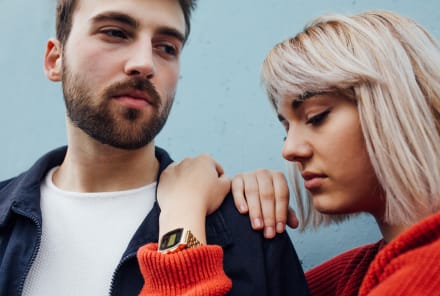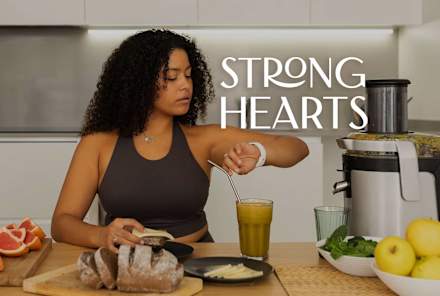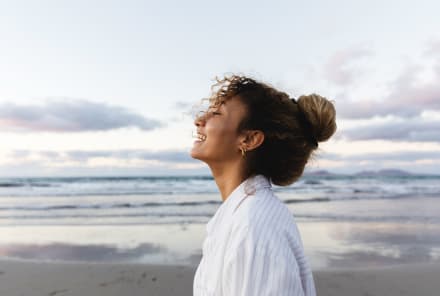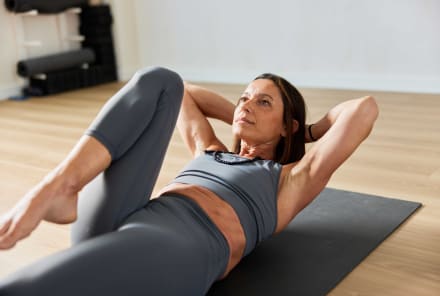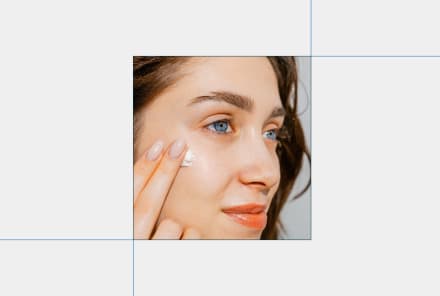Advertisement
14 Scientific Benefits Of Kissing & Why It's Good For You


So, we all know kissing is fun and probably have an inherent hunch that it bonds us with the person attached to the lips on the other end of the smooch...but why? Here are some of the most incredible, scientifically backed benefits of kissing:
1. Kissing can aid in mate selection.
Various studies1 suggest that kissing may play a role in our process of assessing a potential partner. That's because kissing gets us close enough to a potential mate to unconsciously assess compatibility through our senses. Face-sniffing is a real thing: Our olfactory system can pick up pheromones when we get up close and personal with a lover. Some research2 suggests some pheromones may play a role in determining how attractive we find a potential partner.
Naturopathic physician Jolene Brighton, N.D., tells mbg kissing also allows for the exchange of saliva and therefore also microbes and DNA. As such, some studies suggest kissing can tell you about the genetic traits of your mate3 and influence whether or not you want to take it a step further into babymaking. (A related fun fact picked up by a study at the University of Albany4: Women are more likely than men to rule a partner out for a bad kiss.)
2. Kissing can increase arousal.
Many people find kissing arousing, and it can be a great way to build up to sex. According to OB/GYN Jessica A. Shepherd, M.D., MBA, that's because kissing produces many feel-good and stimulating effects on the body: "Several factors have been identified with kissing and love, including oxytocin, vasopressin, dopamine, serotonin, cortisol, and other stress hormones, nerve growth factor, and testosterone," she tells mbg. Many of these chemical changes contribute to the activation of our brain's reward system, making kissing "important for the formation of pair-bonds, and especially for making love a rewarding experience."
3. Kissing can make you feel high.
As mentioned above, kissing releases a party of feel-good hormones that dance together to give you a natural high, including oxytocin (the so-called love hormone) and dopamine (a hormone associated with happiness and attraction).
Importantly, kissing almost always comes with the heady feelings of romantic intrigue and attraction. A study5 by behavioral anthropologist Helen Fisher, Ph.D., and a team of scientists suggests that the effect of the dopamine that can be released during a really great kiss is comparable to the activation that drugs like heroin and cocaine have on the brain.
4. Kissing is linked to a higher likelihood of orgasm for women.
Women are more likely to have an orgasm when sex involves "deep kissing," a 2018 study6 found. (More obviously, they were also more likely to reach orgasm with manual clitoral stimulation or oral sex involved.) Not everyone likes kissing during sex, but one 2007 study4 found just 14% of women would be open to sex without kissing compared to over half of men.
5. Some people can orgasm from kissing alone.
There are some recorded cases of people reaching orgasm from kissing alone7. Similar to the nipples, lips are densely packed with sensitive nerve endings, which is why they're considered an erogenous zone.
"Orgasm typically—but not always—results from rhythmic stimulation of body parts with high concentrations of sensory receptors," Shepherd explains. However, she notes that orgasming from just kissing is "not likely.” But mix it in simultaneously with other forms of sexual stimulation? Now we're talking.
6. Passionate kissing can really work your facial muscles.
In an editorial for the American Journal of Medicine8, American cardiologist Joseph S. Alpert, M.D., says a simple peck only takes two muscles in the face to create the exchange, but a passionate kiss can activate up to 24 facial muscles and 112 postural muscles. Talk about a workout for your face! Who needs face yoga or gua sha if you can just make out?
7. It can also burn some calories.
Alpert also says passionate kissing can burn between 2 and 26 calories a minute. Roughly speaking, for reference, the average 150-pound person burns slightly less than one calorie per minute doing absolutely nothing. (If you want to get into the nitty-gritty details, here's more about how many calories kissing burns, from a light peck to a full-body makeout.)
8. Kissing can help your skin.
Kissing can give you that youth-like glow, and not just because you're blushing from a steamy makeout session. Kissing increases blood flow to the face (it's working quite a number of muscles, remember?), and that blood flow can stimulate the production of collagen and elastin9, two skin-nourishing proteins collagen and elastin.
9. Kissing can increase longevity and livelihood.
A German study from the 1980s by psychologist Arthur Szabo found kissing your partner in the morning before heading off to work is linked with some amazing life improvements: The participants who kissed their partners were said to have lived a median of five years longer than those who didn't, hold jobs paying between 20 and 35% more, lessened their chance of illness by up to 50%, and be involved in "significantly fewer" car accidents.
10. Kissing can potentially enhance your microbiome.
If you think of kissing in its most basic sense, it's really swapping mouth germs with a chosen partner. One Dutch study found that a 10-second French kiss can be the source of 80 million bacteria transferring between two mouths. That might sound gross, but part of having a healthy microbiome is having a variety of bacterial species. We spoke with Jolene Brighton, M.D., about the claim and she said, "When we kiss there is an exchange of saliva, which inherently carries bacteria. There is a potential to strengthen our immune system via exposure."
11. Kissing can help reduce stress.
Looking for a natural stress reliever? Try smooching.
"Kissing can help release oxytocin, which plays a crucial role in reducing stress in relationships," Shepherd says.
Research has shown kissing is linked to lower stress levels10 and cholesterol levels, another marker of stress linked to cortisol production. In the six-week trial, 52 healthy adults in marital and cohabiting romantic partnerships were randomly assigned to experimental and control groups. The experimental group was told to up kiss their partners more often, while the control group resumed status quo life. The result? Relative to the control group, the experimental group showed decreased cholesterol numbers and also generally perceived themselves to be less stressed out.
Another study found 15 minutes of kissing seems to lower cortisol levels themselves.
12. Kissing is good for your relationship.
The above six-week trial? It also found couples who increased their kissing frequency reported higher relationship satisfaction than the control group. That makes sense: Kissing is a form of affection, so the more you do it, the closer and more intimate you'll feel as a couple.
13. Kissing can reduce allergy symptoms.
Attention allergy sufferers: Some research suggests kissing can selectively decrease allergic reactionsf. While this isn't recommended as a fix for life-threatening allergic responses, the study11 did show possible alleviation of mild allergic reactions (like mild atopic eczema) as a result of kissing.
14. Kissing is insanely pleasureful.
Because of the insane amount of nerve endings in our lips. But also because it just plain feels good and is fun to do, so why not?
And if hugging's not your thing, good news: There are also a ton of benefits of hugging.
11 Sources
- https://www.ncbi.nlm.nih.gov/pmc/articles/PMC4487818/
- https://www.ncbi.nlm.nih.gov/pmc/articles/PMC3987372/
- https://journals.sagepub.com/doi/10.1037/a0020451
- https://journals.sagepub.com/doi/pdf/10.1177/147470490700500310
- https://www.ncbi.nlm.nih.gov/pubmed/16255001
- https://www.ncbi.nlm.nih.gov/pubmed/28213723
- https://www.tandfonline.com/doi/full/10.1080/19317611.2018.1491920
- https://www.amjmed.com/article/S0002-9343(13)00186-1/fulltext
- https://www.ncbi.nlm.nih.gov/pmc/articles/PMC2856577/
- https://www.tandfonline.com/doi/abs/10.1080/10570310902856071
- https://www.ncbi.nlm.nih.gov/pubmed/16650596
